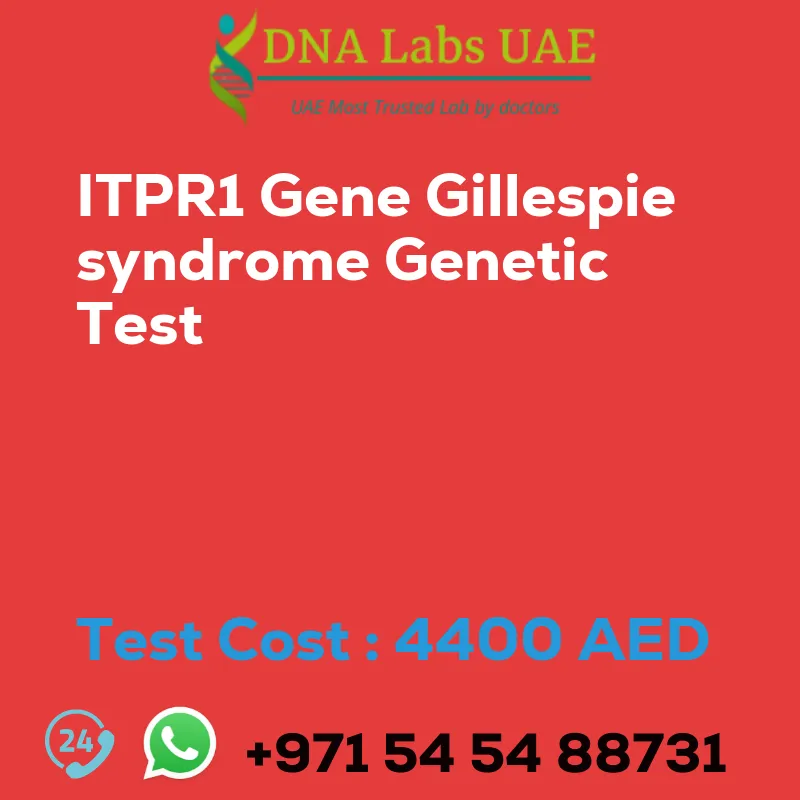ITPR1 Gene Gillespie Syndrome Genetic Test
At DNA Labs UAE, we offer the ITPR1 Gene Gillespie Syndrome Genetic Test at a cost of AED 4400.0.
Test Components
- Price: 4400.0 AED
- Sample Condition: Blood or Extracted DNA or One drop Blood on FTA Card
- Report Delivery: 3 to 4 Weeks
- Method: NGS Technology
- Test Type: Ophthalmology Disorders
- Doctor: Ophthalmologist
- Test Department: Genetics
Pre Test Information
Prior to undergoing the ITPR1 Gene Gillespie Syndrome Genetic Test, it is important to provide the clinical history of the patient. Additionally, a genetic counseling session will be conducted to draw a pedigree chart of family members affected with ITPR1 Gene Gillespie Syndrome.
Test Details
The ITPR1 gene is associated with Gillespie syndrome, a rare genetic disorder characterized by ataxia, developmental delay, and hypogonadotropic hypogonadism. Our NGS (Next Generation Sequencing) genetic testing utilizes advanced technology to analyze the DNA sequence of the ITPR1 gene, allowing us to detect any variations or mutations that may be responsible for Gillespie syndrome. By accurately diagnosing the disorder, we can develop a personalized treatment plan for affected individuals.
| Test Name | ITPR1 Gene Gillespie syndrome Genetic Test |
|---|---|
| Components | |
| Price | 4400.0 AED |
| Sample Condition | Blood or Extracted DNA or One drop Blood on FTA Card |
| Report Delivery | 3 to 4 Weeks |
| Method | NGS Technology |
| Test type | Ophthalmology Disorders |
| Doctor | Ophthalmologist |
| Test Department: | Genetics |
| Pre Test Information | Clinical History of Patient who is going for ITPR1 Gene Gillespie syndrome NGS Genetic DNA Test. A Genetic Counselling session to draw a pedigree chart of family members affected with ITPR1 Gene Gillespie syndrome NGS Genetic DNA Test gene ITPR1 |
| Test Details |
The ITPR1 gene is associated with Gillespie syndrome, which is a rare genetic disorder characterized by the combination of ataxia, developmental delay, and hypogonadotropic hypogonadism. NGS (Next Generation Sequencing) genetic testing is a powerful tool for identifying mutations in the ITPR1 gene that can cause Gillespie syndrome. This test analyzes the DNA sequence of the ITPR1 gene to detect any variations or mutations that may be responsible for the disorder. The results of this test can help doctors make an accurate diagnosis and develop a personalized treatment plan for affected individuals. |







